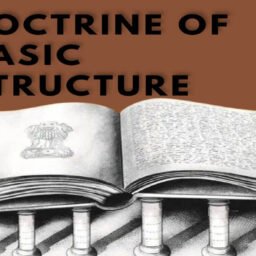
Jammu and Kashmir is a member of the Indian Union, but its constitutional provisions and relations with the central government vary from state to state. Only three subjects – external relations, security, and communications – were offered by the State to the State under the Instrument of Succession.
The special relationship has two distinctive features: 1) The State has greater independence and authority than other countries, and 2) the authority of the Agency within the State is limited to other countries. because of these distinctive features, not all of the provisions of the Indian Constitution apply to Government; some do, and some do not. Other provisions of the Constitution, other than those mentioned above, may be applied to the Government by order of the President, with or without amendment. Section 96 was intended to facilitate the implementation of existing laws in the former province of Jammu and Kashmir or to give effect to the new jurisdictions of the Jammu and Kashmir unions and Ladakh. Articles 14 and 16 of the Constitution of India prohibit discrimination in the workplace based on residency. Non-residents are not allowed to work in Union Territories, which is a violation of Articles 14 and 16.
The amendment will only divide the people of the state by extending the Presidency in the Union Territory of Jammu and Kashmir. Discrimination occurs when you are discriminated against or treated differently from another person in the same situation, or when you are placed on an equal footing with another person in different situations. The idea of booking a room based on where you live is still a thorn in the flesh. As we can see, India has two types of preferred policies:
- The first is to provide social and educational retreat classes, organized classes, and organized nations with special benefits.
- Secondly to provide for special rights to local government ethics organizations to protect them from foreign immigration activities.
Article 15 (4) of the Constitution of India, empowers the state to legislate and provide for the economic and educational development of disadvantaged communities, as well as organized groups and nations. In the case of Indira Sawhney v. Union of India, has developed a 27 percent quoted for “quota Backward Class.” The Supreme Court of India sets a limit of 50% on full reservations because it was thought that violating the limit would deprive others of their right to equality. [1]The Hon’ble High Court has established conditions to exceed the number of bookings in exceptional circumstances. Article 15 (5) is found in the case of Ashoka Kumar Thakur v. Union of India has until now approved the reservation of retreating social and educational classes in state-sponsored educational institutions without the release of OBC’s “cream cover”. [2]Article 16 (4) states that nothing in this article prevents the State from arranging for nominations or submissions in favor of any retiring class, in the State’s view, who represents the public service. Therefore, it is concluded that in the above disputes the reservation policy is unconstitutional.
Article 35A is inconsistent with Indian loyalty and “a spirit of unity“, because it divides the country and establishes “a class among the Indian people.” Anyone “who has lived for a total of 15 years in the Union Territory of Jammu and Kashmir or studied for seven years and appeared in the Class 10/12 examination at the Union Territory of Jammu and Kashmir or another person registered as a guest by the Relief and Assistance Commission (Immigration). It is not included in the Indian Constitution due to an amendment made under Article 368, which governs the process of amending the Constitution.
In We the Citizens v. Union of India, although the law stipulates that a Presidential decree must be introduced in Parliament within six months of its commencement, this has not been achieved. Jammu and Kashmir have never been given special status in the Constitution, although four state delegates were members of the State Council involved in drafting them.[3]
Under Articles 14, 19, and 21 of the Constitution, excluding people from other Indian states from having employment or purchasing immovable property in Jammu and Kashmir is a violation of their fundamental rights. such a sex-based discriminatory implementation of the law violates the constitutional right to equality guaranteed by Articles 14 and 15 of the Constitution of India. The Hon’ble Supreme Court ruled in We the Citizens v. UOI that “Article 35A reduces a woman’s right to birth by marrying a man who does not have a permanent residence permit.” The woman’s children are therefore denied a permanent residence permit, making it illegal. The Constitutional Bench may determine the validity of Articles 35A and 370, according to the Supreme Court of the State. If a traditional man marries a woman who still has a permanent residence visa, he will also be granted that status. This type of law reflects sexual discrimination by the provision.
However, the Jammu and Kashmir Reservation Act of 2004 was in force before Articles 370 and 35A of the Indian Constitution of 1949 were repealed. In Jammu and Kashmir, the Act worked to provide job reservations for Organized Castes, Organized Nations, and Other Social and Academic Retreat Classes. –
The new Jammu and Kashmir Reservation (Amendment) Act, 2019, has amended this Act to include citizens residing in the regions adjacent to the international border.
People belonging to socially and educationally backward groups such as Scheduled Castes and Scheduled Tribes residing in regions adjacent to the Actual Line of Control have been granted reservation in some State Government posts under the Jammu and Kashmir Act, 2004. The state’s residents would be given a 3% reservation in educational institutions and employment. People living along the Line of Control (LoC) will also be granted a reservation due to the difficulties they have experienced as a result of shelling from across the border. Reservation is needed to redress historical injustices that have been committed against people of lower castes in the country. The reservation applies to those who are economically disadvantaged to get them up to par with those who have had access to wealth and means for decades.
Reservation aids in ensuring that citizens from the deprived classes have fair representation in state-run services, as well as for the development of those who are socially and economically disadvantaged. Therefore, reservation guarantees equality as a cornerstone for meritocracy, i.e., before judging others on merit, all individuals must be taken to the same degree, and only then can justice prevail and the domicile reservation policy is constitutionally valid.
Author(s) Name: Payal Ramesh Wayal (Maharashtra National Law University Aurangabad)
[1] Indira Sawhney v. Union of India, AIR 1993 SC 477.
[2] Ashoka Kumar Thakur v. Union of India, AIR 2008 SC 613
[3] We the Citizens v. Union of India, [Writ Petition (Civil) No. 722 of 2014]















